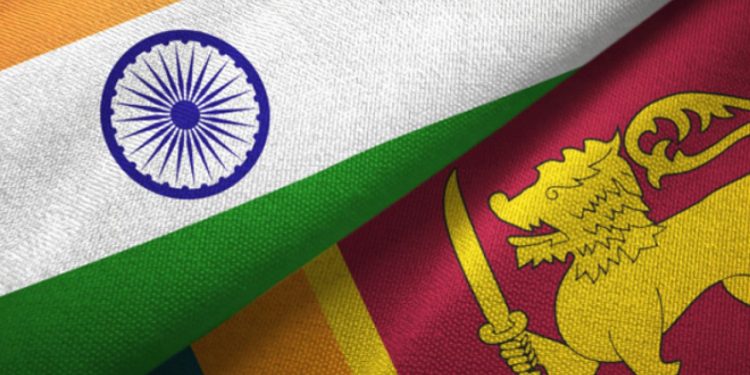It is an irony that when Sri Lanka’s foreign minister GL Peiris spoke highly of improved Sri Lanka-India relations, Sri Lankan Tamil MP CV Wigneswaran asked India, hours before Peiris’ arrival in Delhi last week, to be wary of the understanding between Sri Lanka and China. According to Wigneswaran, Sri Lanka’s closeness to China could possibly pose a threat to India. He also charged the Sri Lankan government with trying to drive a wedge between the Tamil population in the north and east of Sri Lanka by settling ethnic Sinhalese group in the Tamil-dominated parts of the country. China is implementing several projects, including electricity generation in three islands just about 50 km away from India. This, the MP said, would harm India’s interests. In addition, the lease of 15,000 acres of land in southern Sri Lanka for 99 years given to China should not be music to India’s ears, he warned.
True, tensions in the Indo-Sri Lankan relationship have considerably eased and Colombo appears to be ready more than ever before to hail collaborations with India, but it could be the economic crisis the island country is facing that is prompting it to make friendly overtures to India. It is now confronted with dire shortages of essential commodities, fuel and medicines for which it has appealed to several friendly countries, including India, for help. To win India’s confidence, it has finally cleared the Trincomalee storage tanks deal shelved for nearly two decades.
Before the Sri Lankan foreign minister’s visit to India, another development took place. Tamil legislators of the country had written to Prime Minister Narendra Modi a few weeks back seeking New Delhi’s intervention to push the Rajapaksa government to find a lasting solution to the problem of implementing all the provisions laid out in the 13th Amendment, also known as 13A. This is a thorny issue still causing strain in the bilateral ties between India and Sri Lanka. The 13th Amendment became part of Sri Lanka’s Constitution as an offshoot of the India-Sri Lanka Peace Accord. The amendment led to the creation of Provincial Councils. Under this, the Sri Lankan government had pledged a power-sharing arrangement to enable all nine provinces in the country, including Sinhala-majority areas, the right to self-govern. However, successive governments in Colombo have not fully implemented the amendment, despite New Delhi’s repeated pleadings. This explains why External Affairs Minister S Jaishankar told his Sri Lankan counterpart to ensure “equality, justice, peace, and respect for the Tamil people within a united Sri Lanka” by implementing the long-pending 13th Amendment. He contended this would best serve Sri Lanka’s own interests. It is understandable Jaishankar has to be tactful while nudging Colombo to decentralise its powers so that the Sri Lankan Tamils are not marginalised and federal governance is assured. Bilateral ties had hit rough waters last year when the Rajapaksa regime cancelled the $500-million East Container Terminal project – a tripartite agreement among Sri Lanka, India, and Japan – in February 2021 and instead handed over the West Container Terminal (WCT) development plan to the Adani Group, seeking private investment. However, Sri Lanka’s current economic crisis has opened up new opportunities for India to strengthen its relationship with Sri Lanka and check China’s overreaching influence on the country. Last week, New Delhi extended a $500 million line of credit to Sri Lanka to enable it to purchase petroleum products as the country continues to face a severe foreign exchange and energy crisis.
It is only natural that the Sri Lankan Tamils in order to protect their own interests will try to play on India’s fears about China’s stratagems to keep Sri Lanka within its orbit of influence and encircle India from all sides. But, in a strange way, a friendly neighbourhood in north and east Sri Lanka in the form of Sri Lankan Tamils enjoying the fruits of decentralised power will be to India’s advantage as well. What remains a matter of concern, however, is the continued reluctance of President Gotabaya Rajapaksa to engage with the Sri Lankan Tamils. He has not met Tamil parliamentarians even once since he was voted to office in November 2019. On the other hand, the government says a new draft Constitution written by a “committee of experts” could be submitted to Parliament soon. It is this move that has caused anxiety in the Tamil political leadership which fears the government will negate the promise of decentralisation and help a centralised power structure get entrenched.
Against this backdrop, the United Nations Human Rights Council’s debate February 28 on alleged human rights abuses by the Sri Lankan Army at the end of the civil war in 2009 offers an opportunity to India to use the occasion to make Sri Lanka address the concerns of its Tamil population. India is in a tricky position. Reports suggest the UNHRC may indict Sri Lanka and if India becomes a party to it, that may affect the ties between the two countries. A middle path could benefit all the stakeholders in which case India may extract concessions from the Sri Lankan government for the Tamils in lieu of India’s backing at the session.






































